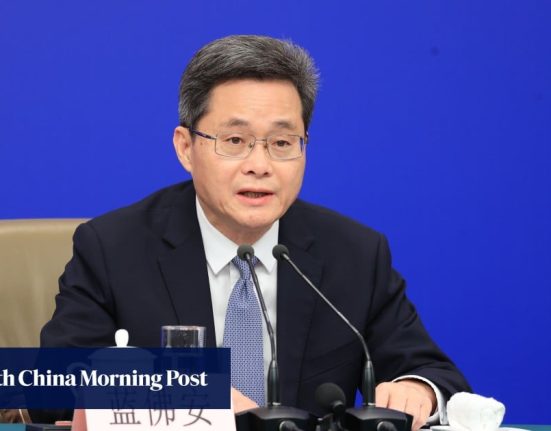In 2017, the Chinese government was the largest cryptocurrency market in the world. It is estimated that as many as 80 percent of all Bitcoin transactions were taking place in Chinese currency, the yuan (also known as the renminbi), at that time. Cryptocurrency exchanges in China were busy and proliferating. The availability of cheap electricity, particularly in regions like Sichuan, made Bitcoin mining a lucrative business.
However, at the height of what seemed like an unqualified success for China’s adoption and use of digital currencies, on September 17, 2017, Coindesk reported that a document leaked on social media “appeared to confirm rumors that all local Bitcoin exchanges must close by the end of the month.”
Indeed, that’s exactly what happened. With no public consultation, no advance notice, and no appeal mechanism, the Chinese government shuttered an international financial product that had gained acceptance and then thrived among everyday Chinese investors. The Chinese Communist Party (CCP) had let the Bitcoin party run for as long as it was expedient. Once the venture became too strong for its own good, and therefore too risky should it fail, the government had no choice but to eliminate it before either eventuality played out.
There are three reasons that China has a problem with cryptocurrencies.
First is that, by definition, cryptocurrencies and blockchain – essentially the immutable ledger that holds the details of all transactions – are a challenge to national sovereignty. Their very nature, and to a large degree purpose, is to circumvent existing financial structures that require the existence and operation of legacy banking systems and governmental approvals. As such, they embody a dual nature: cryptocurrencies can make life more private, more secure, and more efficient, while at the same time opening doors for criminals to launder money, evade political and economic sanctions, aid in human trafficking (including children), and keep all manner of dark and dangerous behavior opaque and under wraps.
Second, the Chinese government saw in cryptocurrencies the risk of financial instability and thus the inherent need to protect investors. For the sake of social stability, the CCP has well learned the importance of keeping its finger on the pulse of its citizenry with regard to issues that directly affect the pocketbooks of the common citizen.
Finally, the government, itself no stranger to the advent of financial misdeeds, also saw the potential for cryptocurrency fraud on a monumental scale, the kind that would be impossible to reverse due to the inherent inability to change blockchain transactions.
There are other naysayers, as well. Some of the most respected technology leaders and investors in the world will have nothing to do with cryptocurrencies.
Warren Buffett called cryptocurrencies “probably rat poison squared” during a 2018 shareholders’ meeting. In a 2021 interview with Bloomberg, Bill Gates said of Elon Musk and his Bitcoin investments, “Elon has tons of money and he is very sophisticated. My general thought would be, if you have less money than Elon, you should probably watch out.”
And in January 2025, Gates told the New York Times that cryptocurrency simply has no value. “None,” he said.
The arguments of these two men, whose slightest words can move markets (particularly Buffett’s), are worth noting. Both, in one way or another, point to one characteristic of cryptocurrencies that seems to get little attention: there is no underlying asset. The value is only in the digital currency, which produces nothing at all. One could say that it is almost a religious attachment that gives cryptocurrencies their value; one just has to have faith. This aspect of the currencies is not lost on Chinese regulators.
Thus, China’s relationship with cryptocurrencies is defined by the competing forces of innovation on the one hand and regulation on the other. China has proven time and again that no individual, company, or in this case, technology, no matter how large or well-financed, will deter the central government from using its authority to shut down threats to the government’s control.
So, ironically, while the government has taken a strong stance against the use of cryptocurrencies, it remains committed to the blockchain technology that underpins them, especially through the digital yuan. When China unveiled the e-CNY, it marked the world’s first central bank digital currency (CBDC) in a major economy.
The seeming paradox between government crackdown on the one hand, followed by government support and guidance on the other, is part of an overall pattern that the Chinese government often uses in its relationship to technology companies, according to Angela Huyue Zhang, a law professor at Hong Kong University. She is author of the book “High Wire: How China Regulates Big Tech and Governs Its Economy.”
The MIT Technology Review summarized the pattern Zhang noticed: “[T]he way Chinese policies change almost always follow a three-phase progression: a lax approach where companies are given relative flexibility to expand and compete, sudden harsh crackdowns that slash profits, and eventually a new loosening of restrictions.”
If Zhang’s three-phase analysis holds true, it could mean a resurgence of support for both cryptocurrency exchanges and Bitcoin at some stage – as long as the CCP feels confident about the control mechanisms it has put in place. This is the logic behind the digital yuan, a cryptocurrency ultimately controlled by China’s own central bank.
The Diplomat spoke with Erik Finman about his views on cryptocurrency, blockchain, and the relationship of these technologies to China.
Finman notably became a millionaire, when, at the age of 12, he invested a birthday present of $1,000 meant for his college fund into Bitcoin instead, and found himself reaping financial rewards for it. He has since gone on to finance and advise a variety of technology companies and startups. He can often be found on Capitol Hill.
Asked about his view on the risk of using cryptocurrency in China, Finman said cryptocurrency “can totally increase corruption, and it can totally decrease corruption. it just depends on how they choose to build and integrate.”
“It can go either way in China,” he continued. “These technologies can make corruption more efficient.”
Looking forward, he flagged as an area to watch “the combination of AI and AI agents in the context of blockchain.” That scenario, Finman said, “can get scary.”
“China,” he went on to say, “can use crypto to make it [China] the ultimate authoritarian controller.”
“So, it’s important for the U.S. and the West,” Finman concluded. In the race to shape cryptocurrencies’ future, “we must win.”







